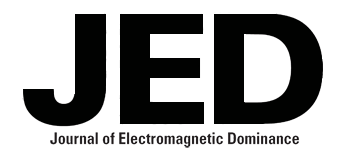DARPA’s Microsystems Technology Office (MTO) has released a BAA for its Compact Front-end Filters at the Element-level (COFFEE) program seeking “innovative proposals in the area of microwave/millimeter wave frequency resonator and filter technology designs, with the specific aim to produce front-end RF filters that protect the elements of digital Active Electronically Scanned Arrays (AESAs) against interference in increasingly crowded RF spectrum environments,” according to a program description in the BAA.
As noted in the BAA, “Over the past decade, there has been increasing interest in wideband AESA systems with digital-at-every-element architectures. Wideband AESAs are of particular interest in multi-function arrays supporting advanced radar, electronic warfare and communications capabilities.”
The BAA points out that the limited dynamic range of high-bandwidth filters makes them vulnerable to jamming, with gain control typically used for element-level protection, at significant cost to receiver sensitivity. This, combined with the fact that “the area available for element-level integration decreases quadratically as frequency increases,” means that today’s receiver filter architectures, even those considered state of the art, can’t provide the performance and protection necessary in a dense, contested EM environment. COFFEE’s integrable filter technology is expected to provide the combination of size, performance and reproducibility needed to protect each individual AESA element.
The BAA requires proposed research to “enable revolutionary advances in science, materials, devices, manufacturing and systems” and specifically excludes research that offers only evolutionary improvements. The program will conclude with a demonstration of a 2-GHz to 18-GHz filter architecture to validate the scalability of the technology.
The effort is currently partitioned across two technical areas (TAs) with a third TA expected to be addressed later. TA1 will focus on design and development of a new class of compact, microwave resonators and their formation into integrable filters. The work will be conducted in three phases over 48 months. TA3 will be in two phases, conducted concurrently with TA1 over 33 months, and will extend the COFFEE effort to millimeter-wave frequencies (demonstrating performance at 50 GHz).
DARPA is expected to release a BAA for the future TA2 effort during the second half of the TA1/TA3 Phase 2 work. This will involve the validation of all the technical challenges of the current BAA by integrating the newly developed filters into a 2-GHz to 18-GHz architecture and a scalability demonstration with a filter tile consisting of 4×4 filter architectures. TA2 will be a single, 18-month effort conducted in parallel with TA1 Phase 3.
Total anticipated 6.2 funding for the effort is $30.5 million ($26 million for TA1 and $4.5 million for TA3) with multiple awards expected for each TA. The proposal due date is Sept. 10, with an estimated period of performance beginning in February 2022. The BAA reference number is HR001121S0031. The technical point of contact is MTO program manager Benjamin Griffin, email [email protected]. – J. Haystead


